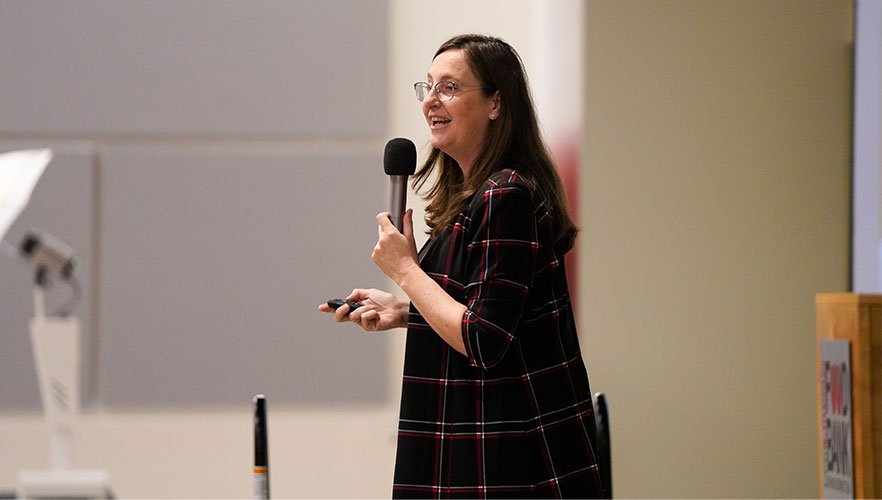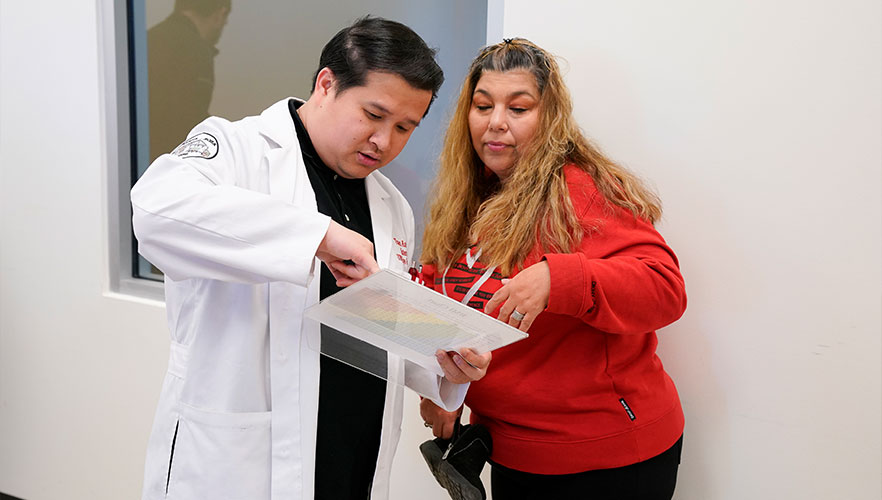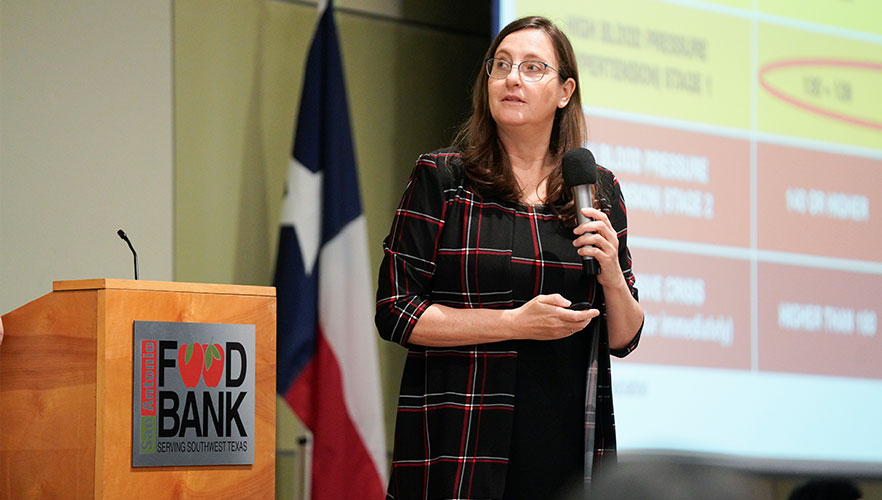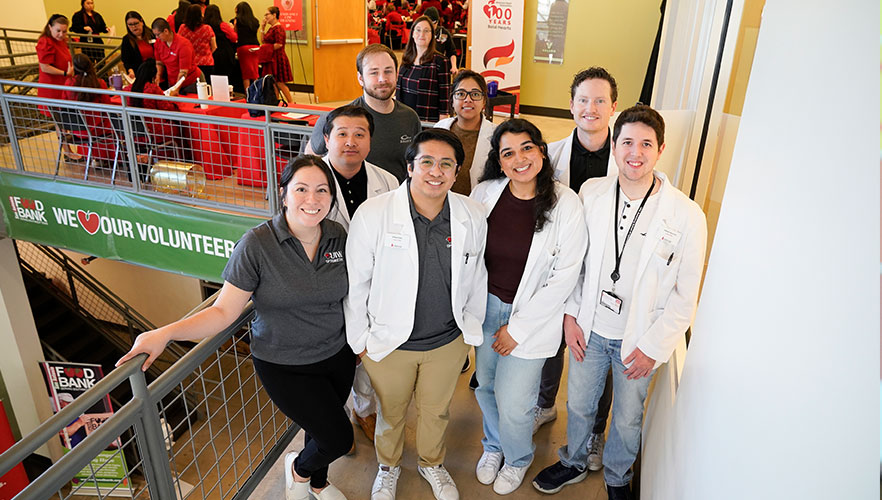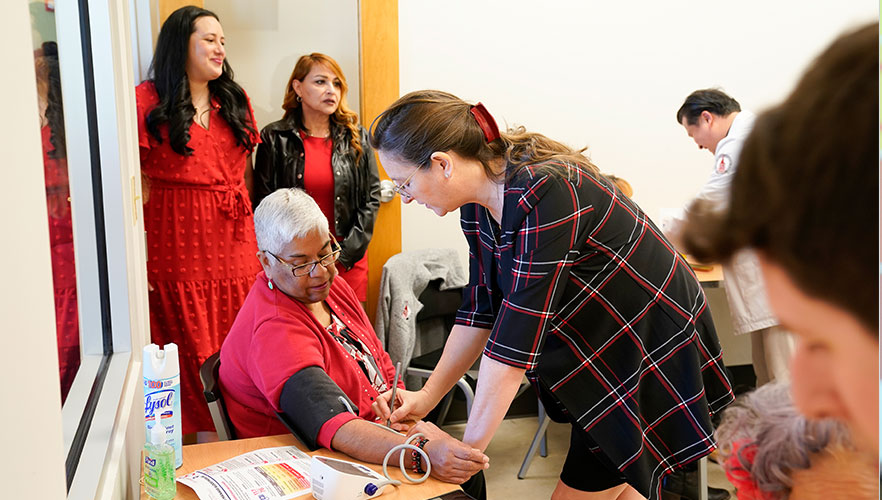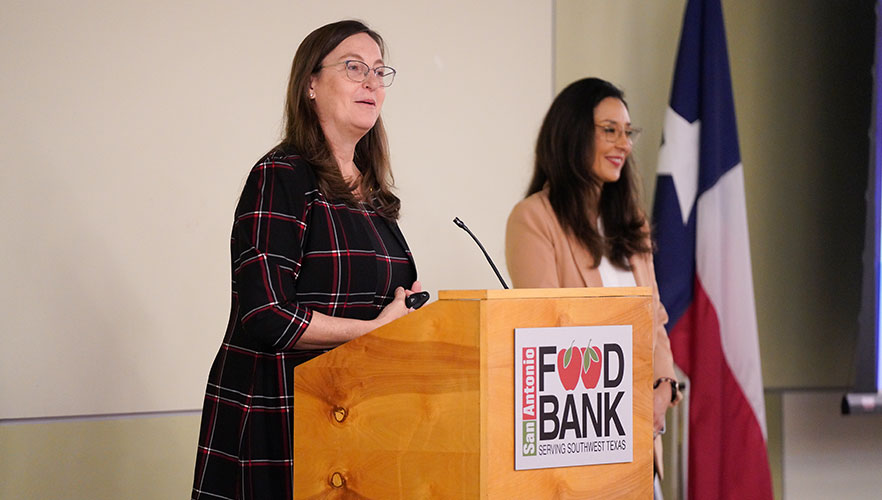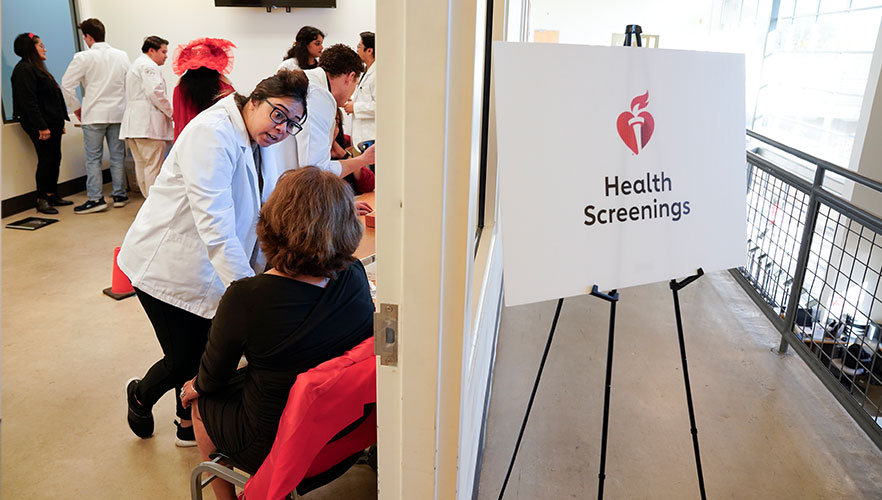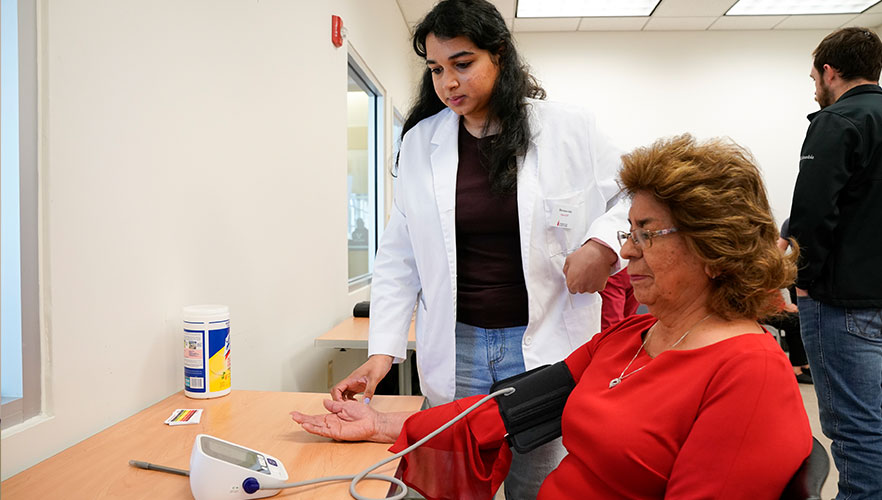UIW Rosenberg School of Optometry Faculty and Students Help to Spread Heart Health Awareness at Vestido Rojo Event
On Saturday, Feb. 24, faculty and students of the UIW Rosenberg School of Optometry (RSO) attended the annual Vestido Rojo event, hosted by the San Antonio Food Bank, to provide health screenings for attendees. Vestido Rojo is held in conjunction with Go Red for Women, the American Heart Association’s nationwide movement that celebrates the energy, passion, and power of women to band together and wipe out heart disease and stroke. The all women’s, bilingual event was held to raise awareness of heart disease and women’s cardiac health.
Event activities included health screenings, a keynote presentation on heart disease risk factors and prevention, workshops on cooking and nutrition, hands-only CPR training and access to mental wellness and heart health resources.
Dr. Lourdes Fortepiani, RSO professor, has served on the Vestido Rojo event committee for eight years. She was inspired to join the committee due to her passionate advocacy for patient health and her educational background in cardiovascular health in women during her Ph.D. studies and postdoctoral fellowship.
“By continuing to celebrate this event, we can emphasize the importance of early detection, prevention, and treatment of cardiovascular conditions in women, particularly Hispanic women, who face a higher risk of undetected, undiagnosed and untreated hypertension,” shared Fortepiani. “Cardiovascular disease remains the leading cause of death in women, often presenting a silent threat. By raising awareness, we are empowering women to take control of their heart health, potentially enhancing their quality of life and life span.”
Since her initial involvement, Fortepiani has helped with the event’s foundational discussions, activity setup and has provided health screenings at a number of institutions. Recognizing the value of this event, she also wanted to give her students the opportunity to participate.
“Last year I involved my optometry students in health screenings and patient education. It is crucial for students to begin offering patient education early in their careers, fostering confidence in non-clinical settings and providing valuable service to the community,” she explained. “This year, new optometry students assisted, and I had the honor to present with colleagues on the impact of cardiovascular health in vision.”
The event offered bilingual accommodations due to the prominent Hispanic population present in San Antonio. By offering more inclusive language options, the event was able to engage a broader audience and have a greater impact. In addition, event facilitators considered the cultural approach of Hispanic countries, allowing for various attendees to feel included, recognized and respected.
As both a health professional and an educator, Fortepiani was proud to see her students take part in an event that raised awareness, encouraged health screenings, empowered women, built community and facilitated service-learning experiences.


